Unless otherwise specified all photos were taken on the evening of 27 June 2024
Outside the Chiesa del Santissimo Nome di Gesù, the mother church of the Jesuit Order, traffic lurches uncertainly; inside the glorious ceiling is one of the great spectacles of Baroque Rome. The juxtaposition of grubby pavements and seventeenth century grandeur is exactly why I adore Rome so much, and one can usually view it in the company of a handful of seminarians and nuns who only add to the dizzying timelessness of it all. Rome, after all, really doesn’t have to be seen amid a relentless throng.
Recently I rewatched Kenneth Clark’s 1969 BBC series Civilisation, a period piece if ever there was one. In the episode which deals with the Roman Baroque, called “Grandeur and Obedience”, he ends by detailing personal misgivings inevitably coloured by a deeply ingrained Anglican snobbery towards the extravagances of excitable Catholic foreigners. You can take the boy out of Winchester, but you can’t take Winchester out of the boy. Clark speaks of “illusion and exploitation”, which step beyond the boundaries he deemed acceptable in art.
His criticisms maintain that the “affluent Baroque in its escape from the earlier severities of the fight against Protestantism ended by escaping from reality into a world of illusion […] becoming more and more sensational”. The corollary to all of this “sensation”, he says, is “imaginative energy fizzing away, up into the clouds which will soon evaporate”.
The clouds he mentions include the ceiling of the Gesù, a church built during the reign of Paul III Farnese. The Farnese are among the families Clark—himself the scion of a Scottish textile fortune—dismisses in the same episode as “rapacious parvenues”. Given that the Castrum Farneti, their first feudal stronghold in Northern Lazio, is first documented in 984 the parvenu bit is perhaps a little strong.
The church was built in the sixteenth century after Pope Paul III authorised the Jesuit Order in 1540. The Jesuits had been founded by Íñigo López de Oñaz y Loyola, a Basque aristocrat who Latinised his name to Ignatius de Loyola. His military career was thwarted by a cannonball which shattered his leg at the Battle of Pamplona in 1521, and during his recovery he underwent a spiritual conversion. During an ascetic retreat in a cave he experienced visions and subsequently wrote his Spiritual Exercises, a series of meditations which sought to provoke the discernment of spirits and provide a path to a mystical connection to the divine. His charismatic and muscular Order was to be a key tool of the Catholic Reformation, instrumental in reclaiming the vacillating Catholic faithful in Europe and in the creation of new congregations in the “New World”.
The original sixteenth century interior of the Gesù had been a clear manifestation of the themes of the Council of Trent: vast, open, and austere in plan, the objective was to eliminate dark corners and focus all attention on the altar and its liturgical function. However the church underwent major alterations nearly a century after it was first built. When the General of the Jesuit Order, Gian Paolo Oliva, opened the competition for the new decorations at the Gesù in 1671, he turned to his friend Gianlorenzo Bernini, master of the Roman Baroque, for advice. The artist, now in his seventies, wasted no time in wholeheartedly recommending his great protégé, Giovanni Battista Gaulli, better known as Il Baciccia, a Genoan abbreviation of his first names.
Il Baciccia (1639-1709) had arrived in Rome aged eighteen after the rest of his family had been killed by the plague which had hit Genoa in 1657. Much of what we know about his arrival in Rome comes from The Lives of modern painters, sculptors and architects. Written in the 1730s by Lione Pascoli it sought—with limited success—to readjust the Tuscan bias of art history dictated by Vasari’s Lives of the Artists. Whilst, as with Vasari, it is unwise to take everything he writes as absolute fact, Pascoli’s account is nevertheless a very useful one. He tells us that after the young Gaulli arrived in Rome he soon came into contact with Bernini who, “while he lived, verily gave him [Gaulli] great illumination, and instructed him, and acted as his master”. Indeed such was the relationship between the two men that Bernini would be named as godfather upon the birth of Gaulli’s first-born son.
Taken under Bernini’s well-connected wing, Gaulli was introduced to the great patrons of seventeeth century Rome, and was taught to capture the spontaneity of expression so beloved by Roman patrons of the Baroque. His rise to popularity as a society portrait painter was swift, and Pascoli tells us that his talents as an artist were augmented by his personability, “good manners, and prudence”.
However, it is said that when presented with more complex quadri storiati (literally paintings which tell a story) requiring multiple figures, Il Baciccia ran into difficulty. Writing his Lives of Genoese painters, sculptors, and architects in the eighteenth century, Carlo Giuseppe Ratti says that “whenever called upon to paint quadri storiati, it was Bernini himself who drew up the plans. Thus [Gaulli’s] load was lightened, and with [Bernini’s] examples he taught [Gaulli]…”. This, whilst reliant on accounts given by Il Baciccia’s son and written some sixty years after the artist’s death, reveals a nervousness very much at odds with the extraordinary and complex bravura of composition found at the ceiling of the nave of the Gesù. The possibility that Bernini may have personally intervened in the planning of the project has been considered, and undoubtedly the commission at the Gesù was unlike anything Gaulli had previously undertaken or would create again.
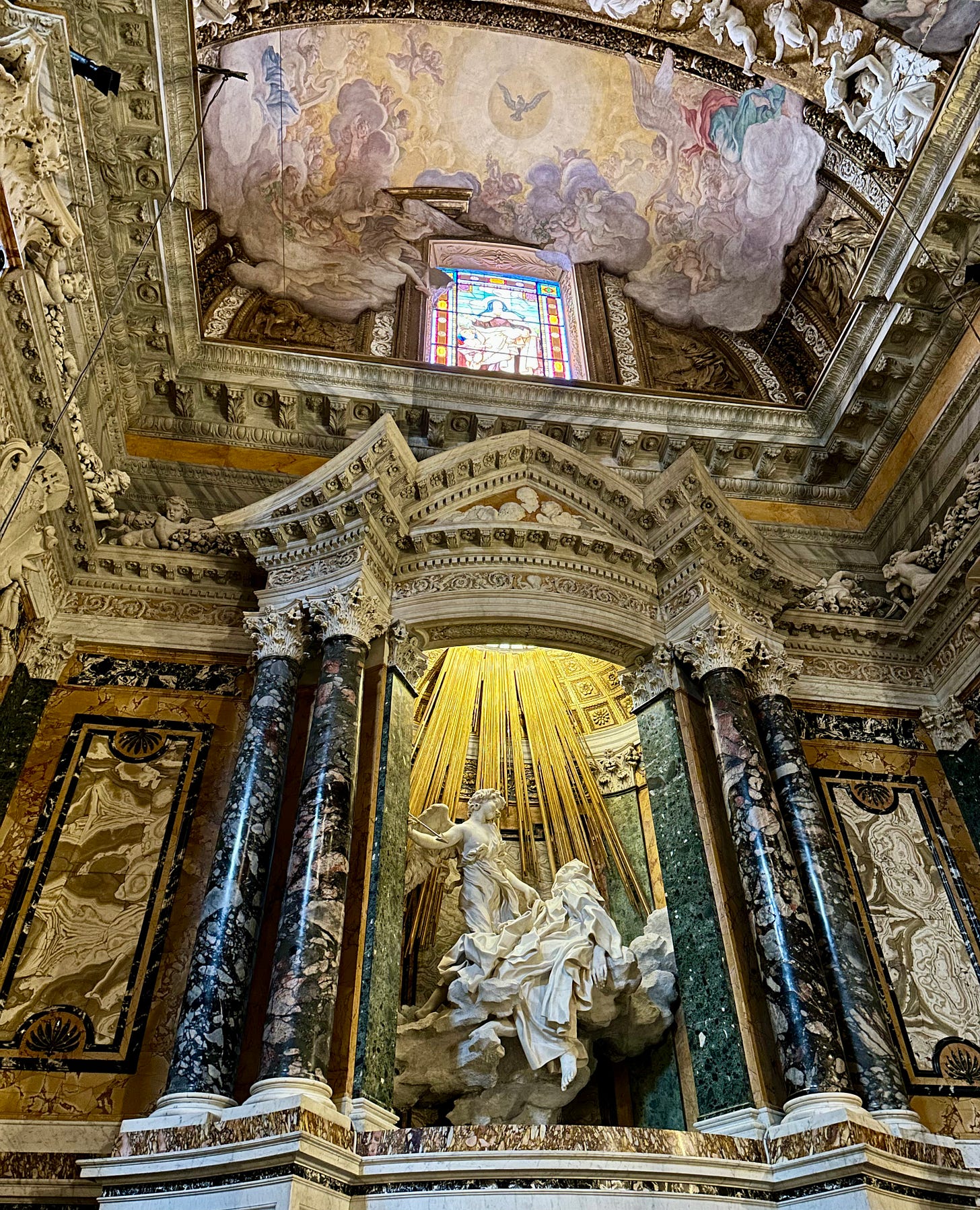
Indeed a direct link can be seen between the paintings at the Gesù and the works executed by Guido Ubaldo Abbatini from Bernini’s designs in the vault of the Cornaro Chapel at Santa Maria della Vittoria.
The vault of the nave at the Gesù was finally unveiled on Christmas Eve of 1679. Called the Triumph of the Most Holy Name of Jesus it is a multi-media extravaganza of fresco painting, stucco, and architecture. It is a masterpiece of illusionism, difficult to see where the painting ends and the stucco and architecture begin. It is as if the gilded decoration of the ceiling, supported by white stucco angels, has been peeled open to give a vision of the heavens.
The angels are the work of Ercole Antonio Raggi, right-hand man to Bernini, another reminder of the close link between Baciccia and his mentor. At the centre IHS, the Jesuit Christogram radiates blinding light and cherubim. To the left, projecting out from the field of the painting, the Magi proffer their gifts to the name of Christ. The figures kneeling in prayer in the central band are drawn up into Heaven by this light. Supported by angels, the clouds on which they kneel darken underneath, as simultaneously the name of God banishes sinners down into Hell. In the darkness beneath and to the right, a writhing mass of the heretical and the damned hurtle towards the viewer in the nave.
At the top right of this group the figure of Vanity is identifiable by her peacock, and by her side Heresy is shown with a head of snakes. These figures spill over the gilded ‘frame’ in a mass of painted stucco, interacting with the gilded stucco of the ‘earthly’ realm.
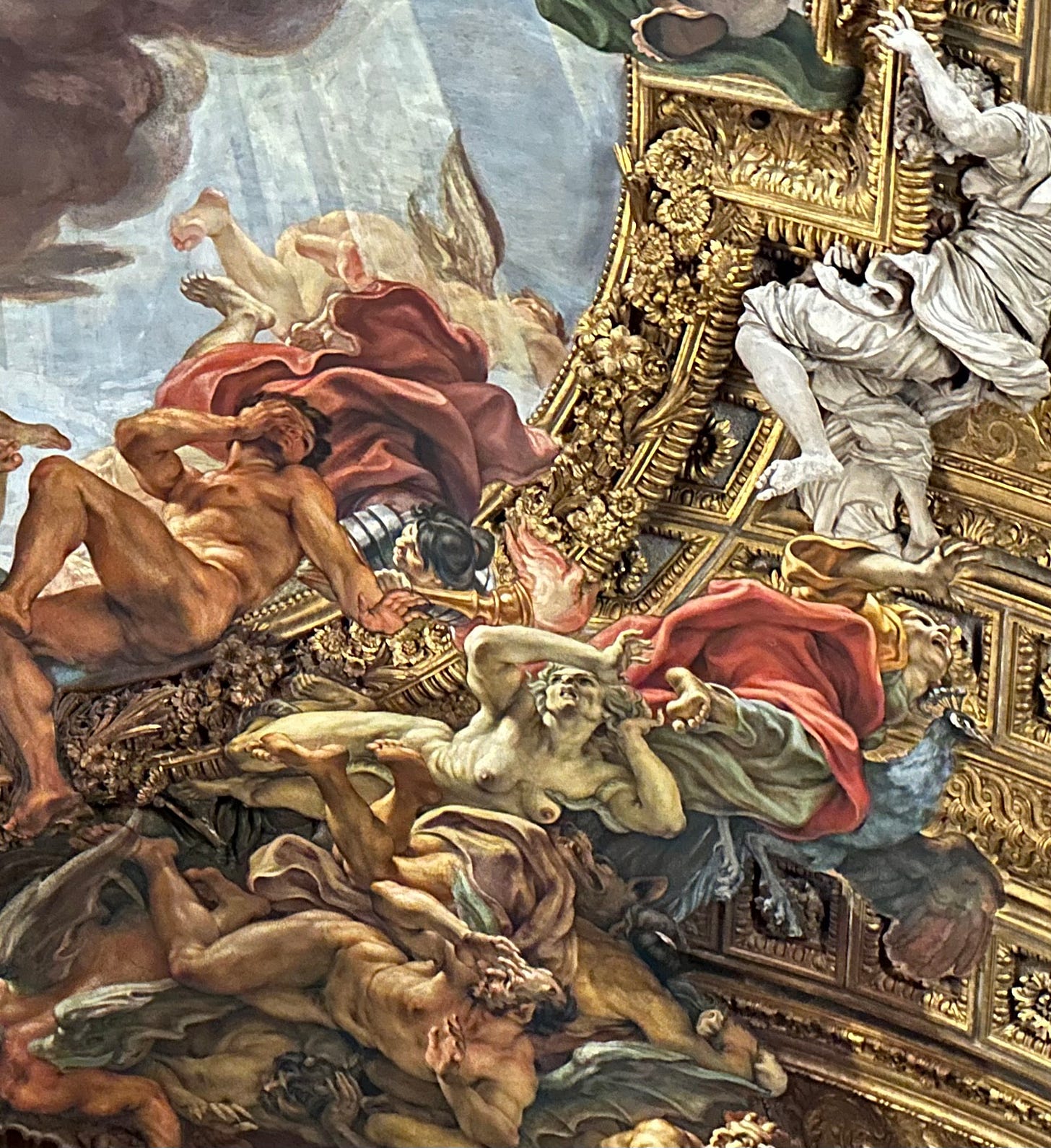
They even cast their (illusionistic) shadows over the church ceiling, the divine light blocked. The project, for it cannot be simply described as a painting, is realized using the da sotto in su (literally “from below upwards”) perspective so beloved of artists of the Baroque. Here this sotto in su serves to emphasise the upward movement of the just towards the brilliant light. This vortex has as its apex the monogram of the Jesuits, towards which the just are drawn, and away from which the damned are repelled.
The drama of the event is such that the ordered and logical Classical architectural forms, set out in the father of all painted ceilings—Michaelangelo’s work at the Sistine Chapel—which had so characterised the spirit of the Renaissance, are unable to contain it. The very language of Renaissance order, once used to express the union between the earthly and the heavenly, of man’s knowledge of the unknowable, is here used for the opposite purpose. The earthly carefulness of the arches and rosettes of the stucco ceiling are engulfed by the drama of the power of the Name of Christ.
One can only begin to imagine the effect it must have had on the weary seventeenth century pilgrim who had tramped across mountains and rivers, avoiding cutthroats and disease, and had probably never been to a city before. These are immersive special effects revealing the visions of Ignatius Loyola to all who pass by. I think in his Anglocentric superiority Kenneth Clark was missing the point rather: whether all this “imaginative energy fizzing up into the clouds” would soon evaporate or not was really neither here nor there. By wowing the faithful who would visit perhaps once it had already done its work, which was to be as un-Protestant as possible. That was precisely the point.

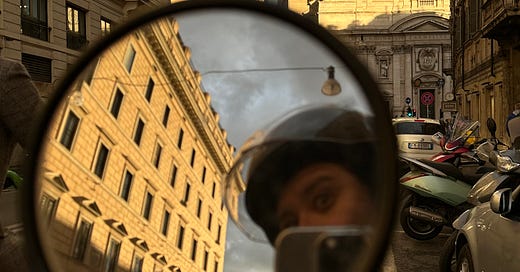



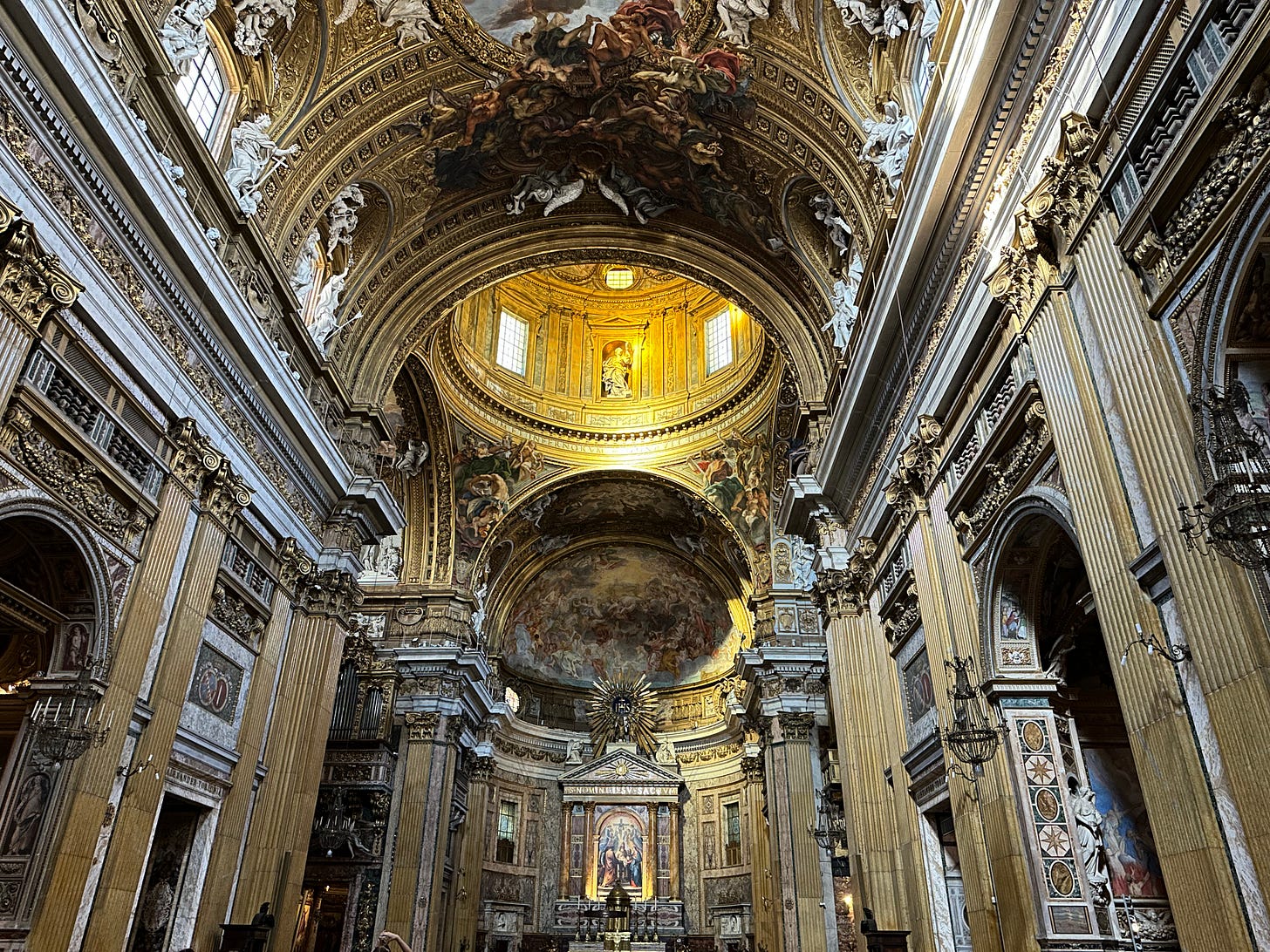

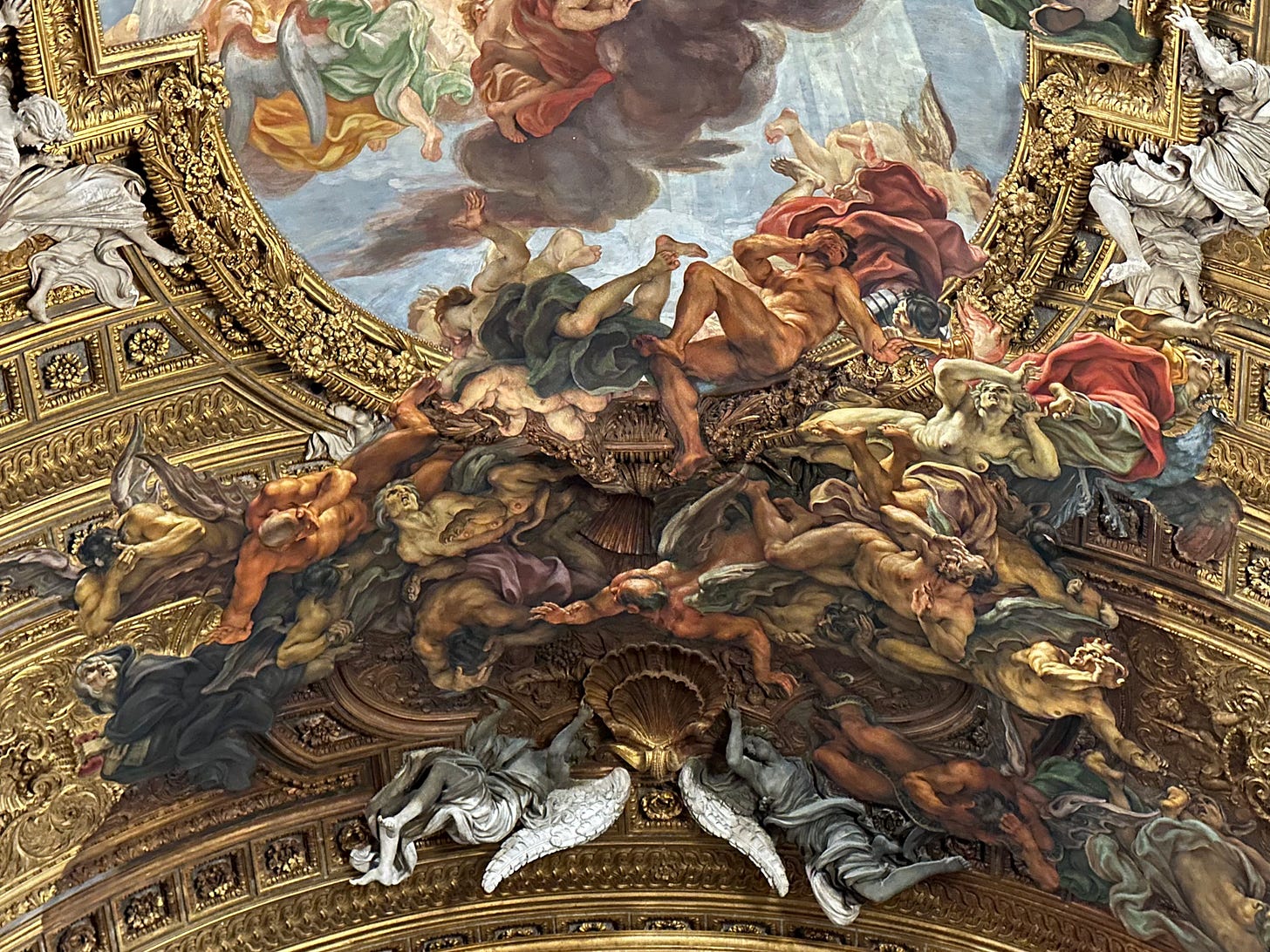
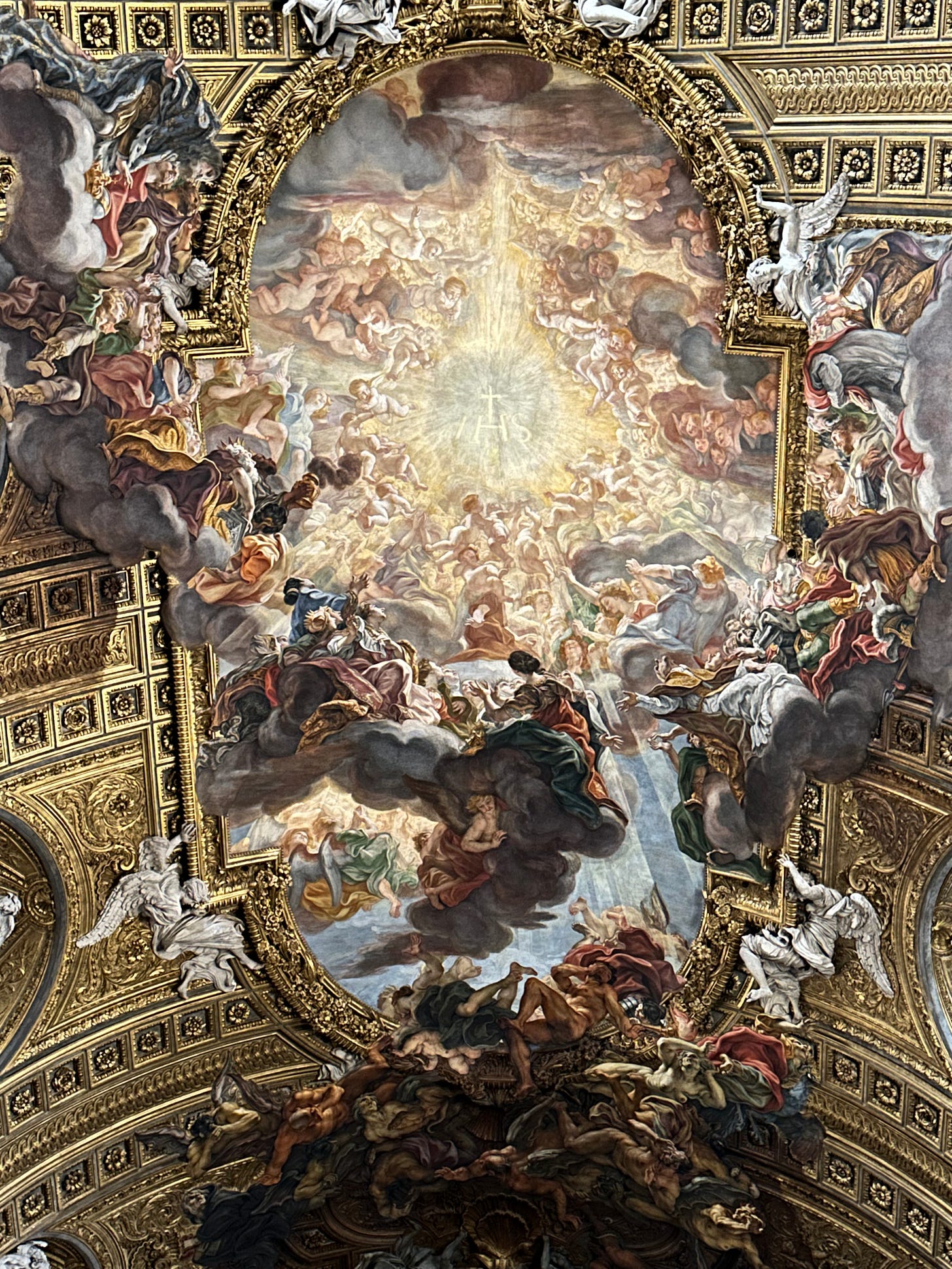
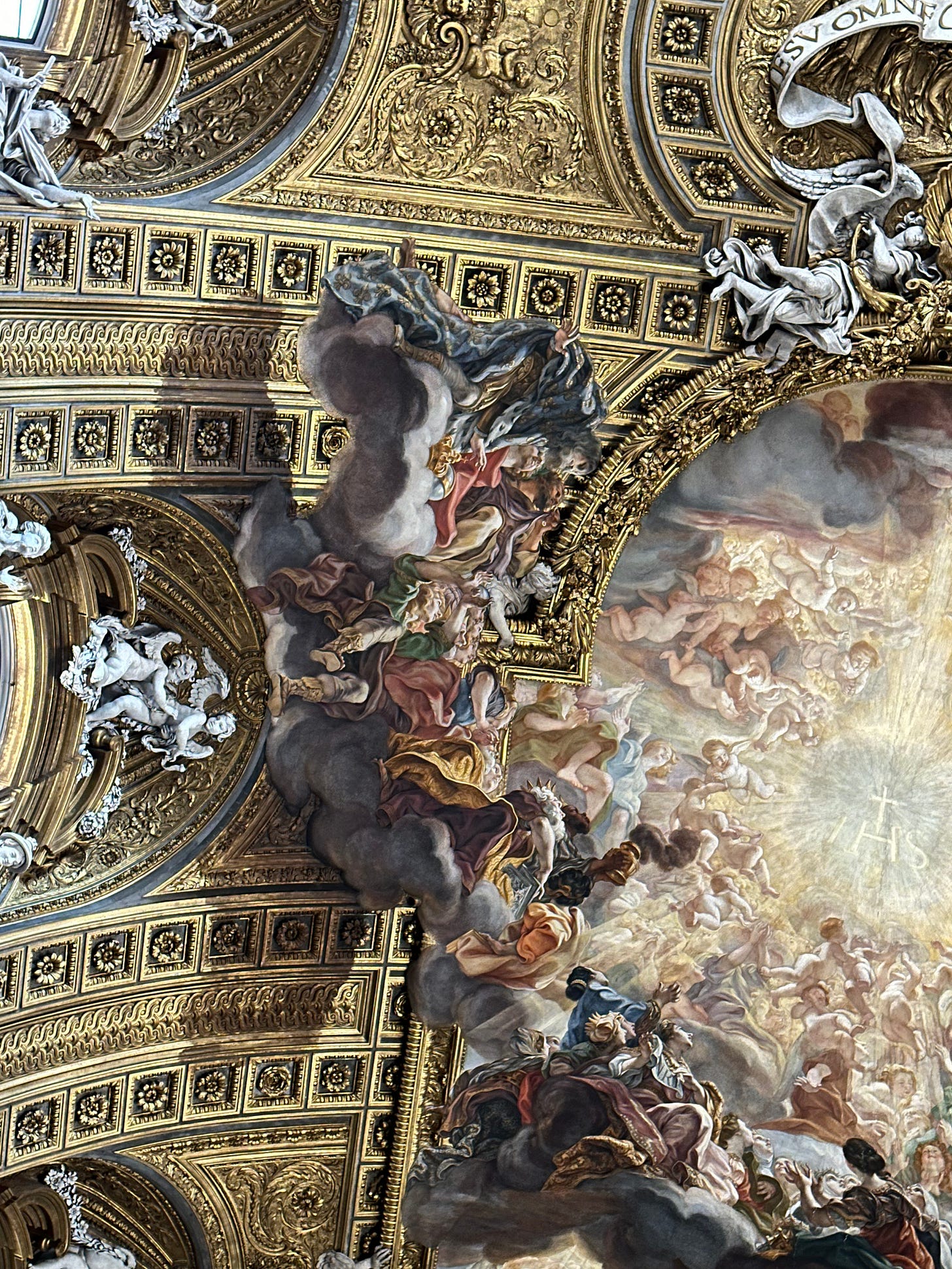
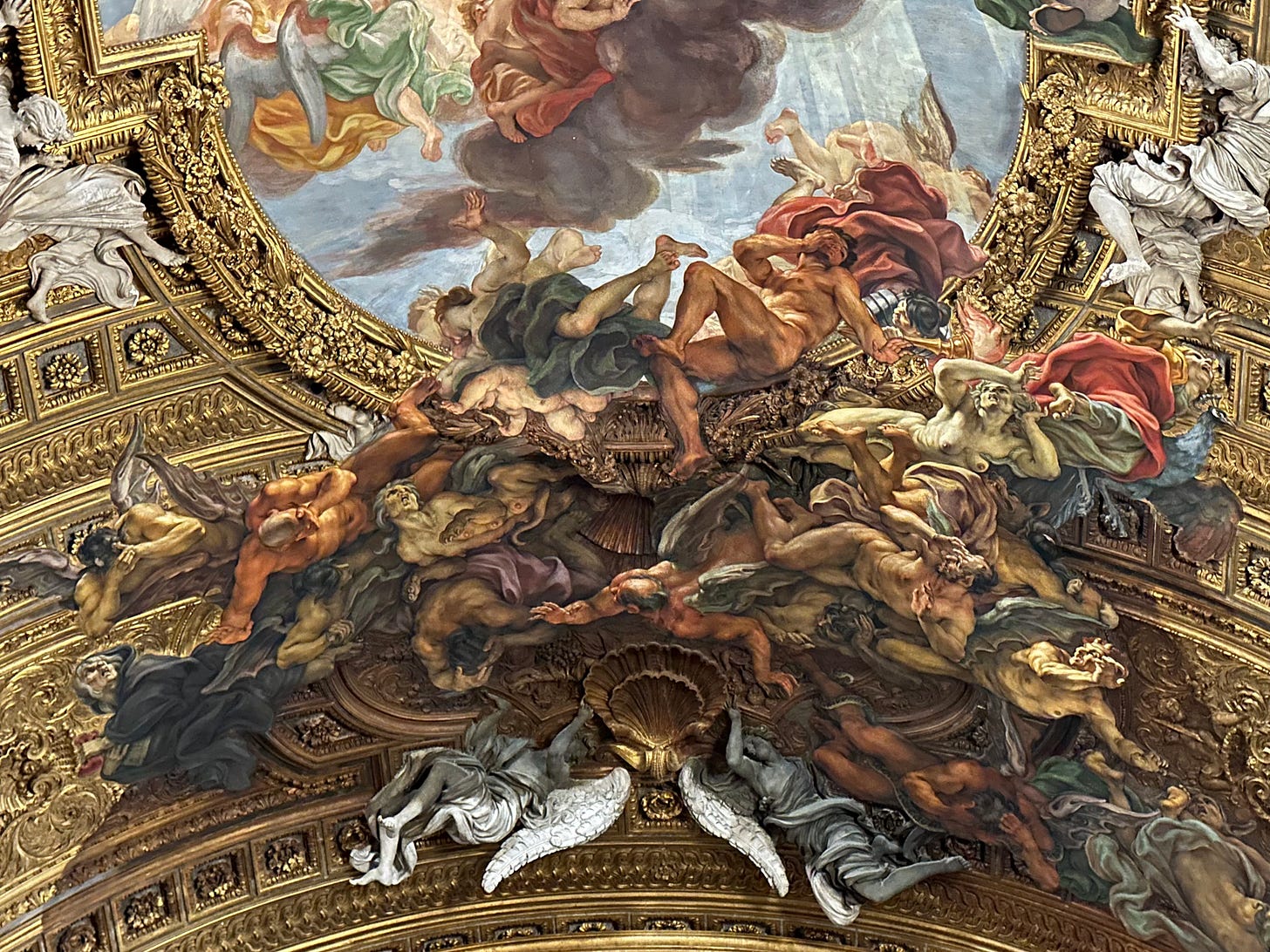
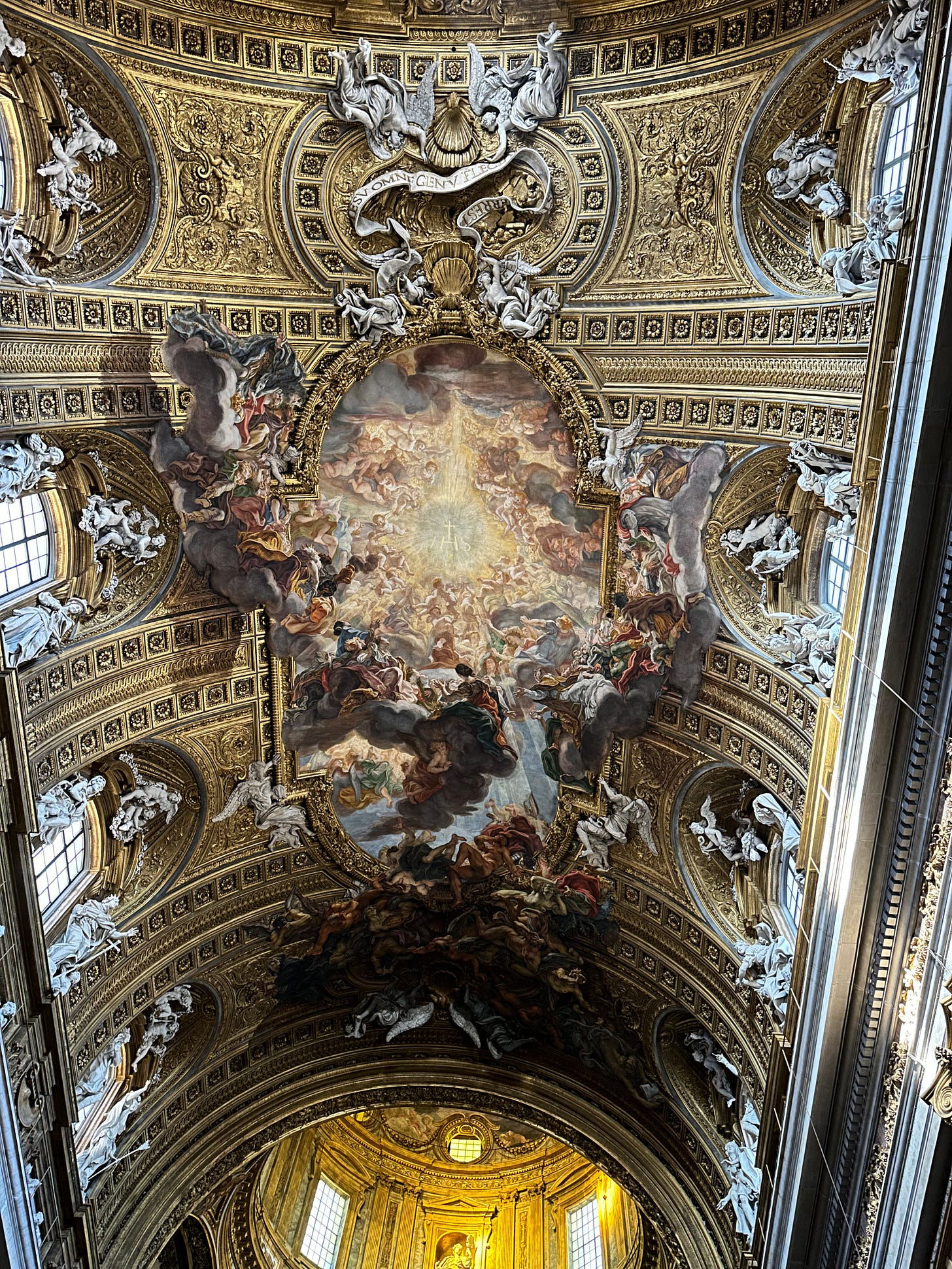
Excellent observations!
“Illusion and exploitation” does seem to have been a thing for one later Wykehamist, however. 😉
Astounding craftsmanship, amazing imagination, overwhelming effect on the viewer, but no matter how hard I try I can’t make myself like it.
I loved reading your essay and explanation which helped me understand better the reason for such an “extravaganza” , but Agnes it’s still not to my taste.
However, I do love seeing the world through your eyes and your explanations and observations with your extraordinary depth of knowledge and understanding.
Thank you, for helping me to take a second look at everything from a new angle.
Much love Picones